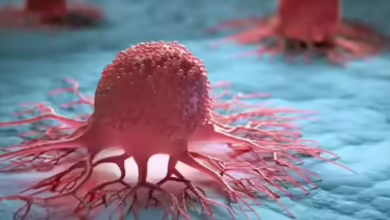5 Significant Body Changes Postpartum Women Experience
Postpartum problems, particularly for the mother, may significantly disrupt a family’s way of life. In addition to adapting to motherhood, a new mother has psychological and physical side effects after giving birth. It is typical for certain symptoms to linger for a few days or weeks after giving birth since a mother’s body needs time to heal from pregnancy, according to doctors.
The length of the recovery time depends on the person’s health and the kind of delivery. So, here, we’ve highlighted a few of the physical alterations that giving birth causes in a woman’s body.
Breast alterations
Colostrum is the richer, creamier, and more immune-rich first milk produced by mothers’ breasts. Since it strengthens their immune system and protects against illnesses, it is essential for the child. Nursing may be unpleasant at this time due to the tender, swollen, and painful breasts. Women often endure milk leakage for many weeks, and breast sagging is common.
Internal Changes
After birth, the uterus still feels like a little, spherical lump in the lower anterior abdomen and is heavy, a kilogramme or so in weight, and somewhat restricted. Pregnancy stretch marks and the linea nigra on the belly have a longer lifespan. The placenta being separated from the uterine inner wall and contractions after birth cause the uterus to contract. It is completely confined inside the pelvis and weighs around eleven ounces at two weeks.
Sexual Interest
The fall in sexual urge in new mothers is mostly due to the female hormone oestrogen. This is caused by the hormones LH and FSH, which regulate sexual arousal. Inhibitions brought on by genital discomfort, stress, and an inability to control time spent with the kid may also cause a reduction in sexual urge.
Body Mass
During the postpartum phase, weight loss happens gradually as the body gets rid of surplus water and water that has been trapped in the cells. This weight loss is apparent in the first week of pregnancy as a consequence of the placenta, a lack of amniotic fluid, and the weight of the baby.
Skin alterations
The skin might be affected by lifestyle changes brought on by parenthood, such as stress and fatigue. Hormonal fluctuations may also affect the skin, with women who have clean, healthy skin being more prone to breakouts. Chloasma faciei or melasma are darker patches or zones of dark skin that progressively go away as long as the mother shields her skin from the sun. Another common pregnancy symptom that may be addressed with certain oils and lotions are stretch marks.







